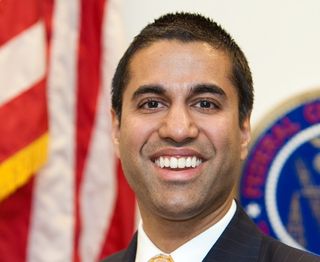Pai Reforms ‘Editorial Privileges’ Privilege

FCC Chairman Ajit Pai Thursday (Feb. 9) continued his string of FCC process reforms, now numbering a half dozen or so.
His fellow Republican commissioner, Michael O'Rielly has long protested the fact that substantive changes were allowed to be made to items after the commissioners had voted them at public meetings.
Regular meeting watches had become used to then-chairman Tom Wheeler ending a meeting with the granting of editorial privileges and a note of the standing objection.
Those privileges mean that bureau and commissioner staffs cn make changes to the document.
O'Rielly said the power was too broad, extending beyond a footnote addition or grammatical changes to substantive edits. Pai agrees.
"Filling in a citation in a document is one thing; changing the meaning of that document is another," he said in announcing the change.
He said beginning with the Feb. 23 meeting, any substantive changes to a document have to proposed by a commissioner, and "should only be made in cases in which they are required, pursuant to the Administrative
Multichannel Newsletter
The smarter way to stay on top of the multichannel video marketplace. Sign up below.
Procedure Act, as a response to new arguments made in a Commissioner’s dissenting statement."
O'Rielly's standing objection appears to be a thing of the past.
"I gladly support the effort to officially establish an FCC post-adoption editorial process that is sufficiently narrow and should rarely be needed," he said. "finally fixing a process abuse of our past. Chairman Pai should be commended for his continued leadership on process reform."
Contributing editor John Eggerton has been an editor and/or writer on media regulation, legislation and policy for over four decades, including covering the FCC, FTC, Congress, the major media trade associations, and the federal courts. In addition to Multichannel News and Broadcasting + Cable, his work has appeared in Radio World, TV Technology, TV Fax, This Week in Consumer Electronics, Variety and the Encyclopedia Britannica.

